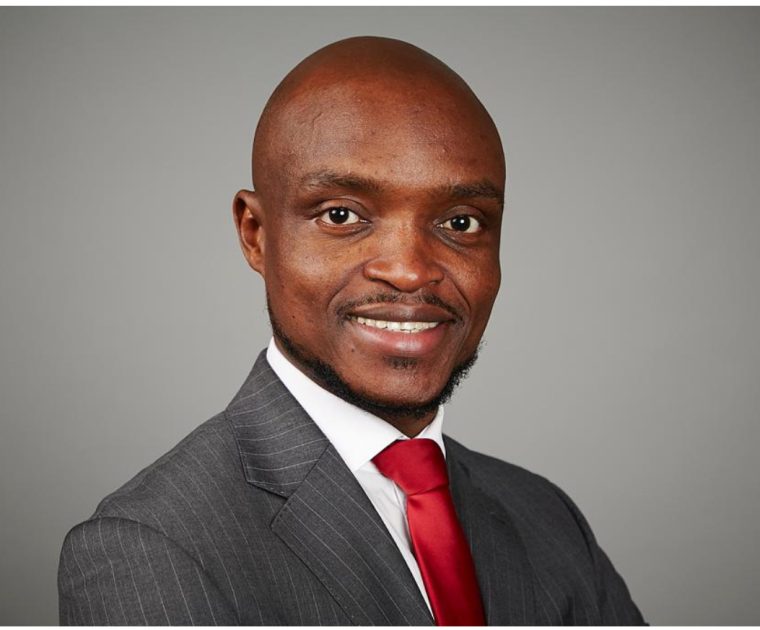Treading on Uncharted Grounds: Specialisation in Emerging Areas of Legal Practice

Jake Okechukwu Effoduh
What inspired you to pursue artificial intelligence (AI) law as a specialisation, and how did you identify it as an emerging area of legal practice with significant potential?
My inspiration to specialize in this area stems from a belief that technology, particularly AI, is not neutral. It can perpetuate and amplify societal inequalities if left unchecked. I saw a glaring gap in how laws and regulations address these challenges, particularly for marginalized communities, and I wanted to fill that gap.
As an African scholar, I was struck by the disconnect between global technological advancements and the experiences of people in the Global South. The old African proverb, “When the music changes, so does the dance,” reminds us that as the world changes, we must adapt. AI is changing the music of our era, and the law must learn to dance to its rhythm. Identifying AI as an emerging field was a matter of recognizing that technology law was not only about innovation but also about justice, equity, and human dignity.
This is the future of legal practice, and I felt compelled to lead from a perspective that centers the rights and realities of Africans and other marginalized populations.
What were some of the biggest challenges you faced while building expertise in an emerging field, especially for an African-bred lawyer, and how did you overcome them?
One of the greatest challenges was the limited resources and frameworks addressing AI law from an African perspective. Much of the research, case studies, and regulations were designed for Western contexts, often failing to account for the unique cultural, social, and economic landscapes of Africa. Additionally, skepticism toward new fields like this was another barrier, as some questioned whether this area was relevant to African legal systems.
To overcome these challenges, I embraced two key strategies: community and creativity. I sought out global networks of scholars and practitioners working on AI and the law, leveraging virtual platforms to engage in discussions, collaborations, and debates. At the same time, I committed to creating resources and frameworks tailored to African realities. For instance, I began writing extensively about how traditional African values such as Ubuntu (“I am because we are”) from Southern Africa emphasizes interconnectedness and collective well-being, advocating for AI systems that prioritize dignity and inclusivity; Harambee (“pulling together”) from Kenya for collaborative policy development and participatory AI governance; Sankofa (“go back and fetch it”) from Ghana on the importance of learning from history to address issues like bias in datasets and ensuring cultural sensitivity in AI applications and even how the “Ogbo” age-grade governance system of my indigenous culture in Nigeria reflects democratic accountability and generational equity, which can foster shared oversight and stewardship of AI systems.
What advice would you give to lawyers practicing in Africa who are seeking to carve a niche in a field that is still developing and has limited resources or precedent?
My advice is simple: sometimes you can be a pioneer, not just a follower. Emerging fields like AI and law are fertile ground for those willing to take risks, learn continuously, and innovate. Start by identifying the specific challenges and opportunities unique to your local or regional context. For example, how does AI intersect with data protection, electoral processes, or digital identities in Africa? These are areas where your insights can create new precedents.
Also, remember that you do not need to have all the answers immediately. Start small and collaborate widely. AI and computer science is interdisciplinary, so engage with folks in other fields to enrich your understanding. Finally, keep asking questions and be teachable.
What specific skills and knowledge are essential for lawyers, particularly lawyers in Africa, who want to specialise in AI law, and how can they acquire them?
Legal and regulatory knowledge is one. A strong understanding of data protection laws, intellectual property, competition law, and human rights frameworks etc, is crucial. Familiarize yourself with international legal instruments vis a vis local and regional policies that address context-specific challenges. Technical literacy is another. While you do not need to become a programmer, you should understand how AI systems function, including concepts like machine learning, algorithms, and bias. Online courses, workshops, and webinars are excellent resources to develop this technical literacy.
But you’ll need to employ critical and interdisciplinary thinking. This is crucial because the issues with AI border mostly on its impact on society. Skills in critical thinking and socio-legal analysis will help you navigate complex issues like bias and discrimination, or limitation in explainability from AI systems.
What practical steps can young lawyers take to build credibility and gain recognition as specialists in emerging legal fields?
Well, I’ll say develop expertise through continuous learning. Knowledge is like a garden; if it is not cultivated, it cannot be harvested. So, constantly grow your expertise, and your reputation will follow. Writing articles, opinion pieces, and research papers is a powerful way to establish your authority, too. Start by contributing to legal blogs, journals, or even LinkedIn. And if you can, find mentors who have already established themselves in related fields. They can provide valuable advice, introduce you to key networks, and help you avoid common pitfalls.
However, note that credibility takes time to build, especially in emerging fields like these. Stay consistent in your efforts, and do not be discouraged by initial challenges or slow progress.
About Jake
Jake Okechukwu Effoduh is an Assistant Professor at the Lincoln Alexander School of Law of the Toronto Metropolitan University in Canada, where he teaches Technology Law. With expertise at the intersections of international law, human rights, and AI, Effoduh has informed the regulatory frameworks and policy formulation on artificial intelligence (AI) at the United Nations and the African Union, as well as for several countries, including Canada, the United States, Brazil, and Nigeria. Effoduh’s current research investigates how the governance of AI systems can effectively address algorithmic bias against Africans and people of African descent, as well as discrimination and unfair treatment based on protected characteristics such as race, gender, identity and ethnicity.





Leave a Reply